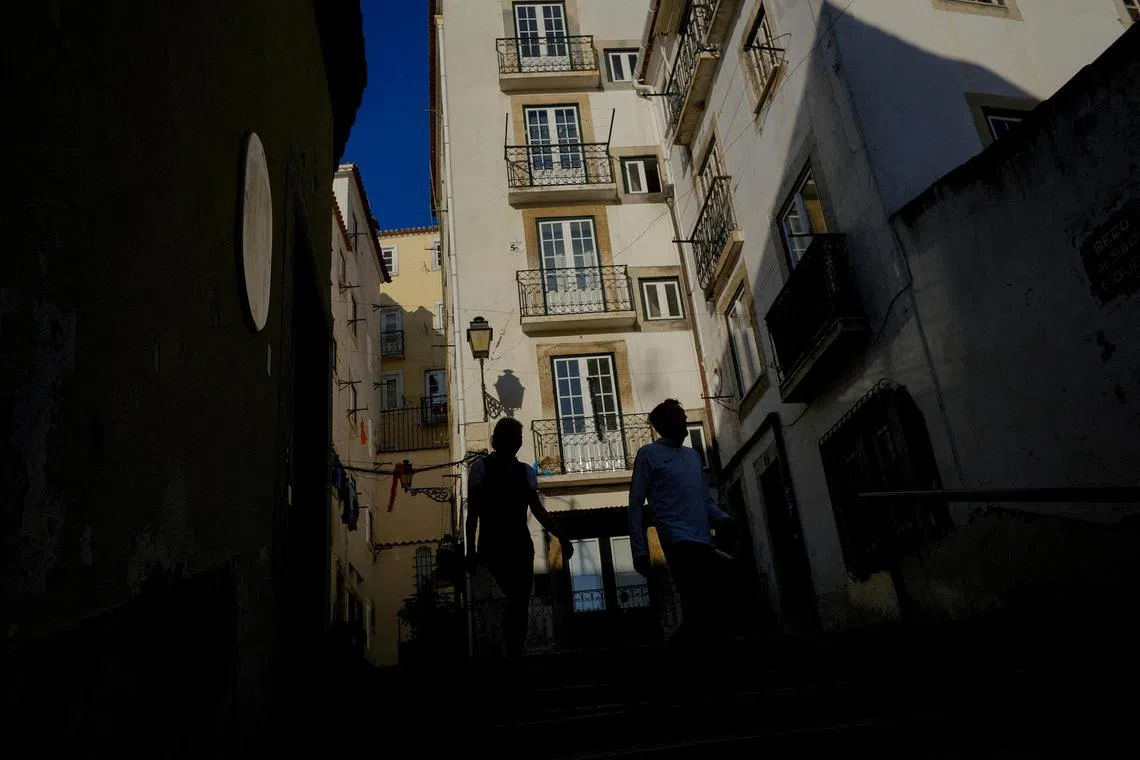Portugal wants to force owners of vacant homes to find tenants
Sign up now: Get ST's newsletters delivered to your inbox

Homeowners and investors say that obliging people to rent out their houses goes against the constitutional right to private property.
PHOTO: REUTERS
Follow topic:
LISBON - Portugal’s government wants to force owners of vacant homes across the country to make them available to long-term renters.
The move, a bid to increase housing supply in a strained real estate market that is unaffordable to many locals, has been attacked by property owners as a violation of the constitution.
The decision is part of a package of measures approved last week at a Cabinet meeting. The More Housing plan also includes limits on rent increases, initiatives to speed up new building permits, a ban on new short-term rentals in cities and an end to the so-called golden visa programme.
Home owners and investors say that obliging people to rent out their houses goes against the constitutional right to private property. The government has yet to provide details on how exactly it plans to execute this new policy.
“It’s clearly unconstitutional,” Dr Luis Menezes Leitao, president of the Lisbon Property Owners’ Association, said in an interview on Monday.
Dr Menezes Leitao, who is also a law professor, said the government should leave private home owners alone and instead focus on building more affordable homes.
Separately, the Portuguese Association of Real Estate Developers and Investors issued a statement describing the forced rentals as “an attack” on private property.
Housing Minister Marina Goncalves has defended the policy as a way to ease the housing crunch that has helped drive property and rental prices to record highs, especially in Lisbon. Holiday homes, she said, will not be targeted. Her government estimates that about 730,000 homes in Portugal are empty.
“An empty house … must be used for the purpose it was created for,” Ms Goncalves said in an interview with Portuguese television station SIC. Although the policy still needs to be fine-tuned, she acknowledged, the measure is legal.
The right to property “is never called into question”, she said.
“The state does not enter and occupy people’s homes and then say, ‘Now I’m here.’ We have steps that will be taken.”
The government housing proposals will be up for public discussion until March 16, when the Cabinet will vote on their final approval. Some of these measures also need to be passed by Parliament, where the ruling Socialist government holds a majority.
In 2021, an estimated 78 per cent of people in Portugal lived in a home they owned, while the rest lived in rental units, according to the latest Eurostat data available. The average wage in Portugal is among the lowest in Western Europe. BLOOMBERG

